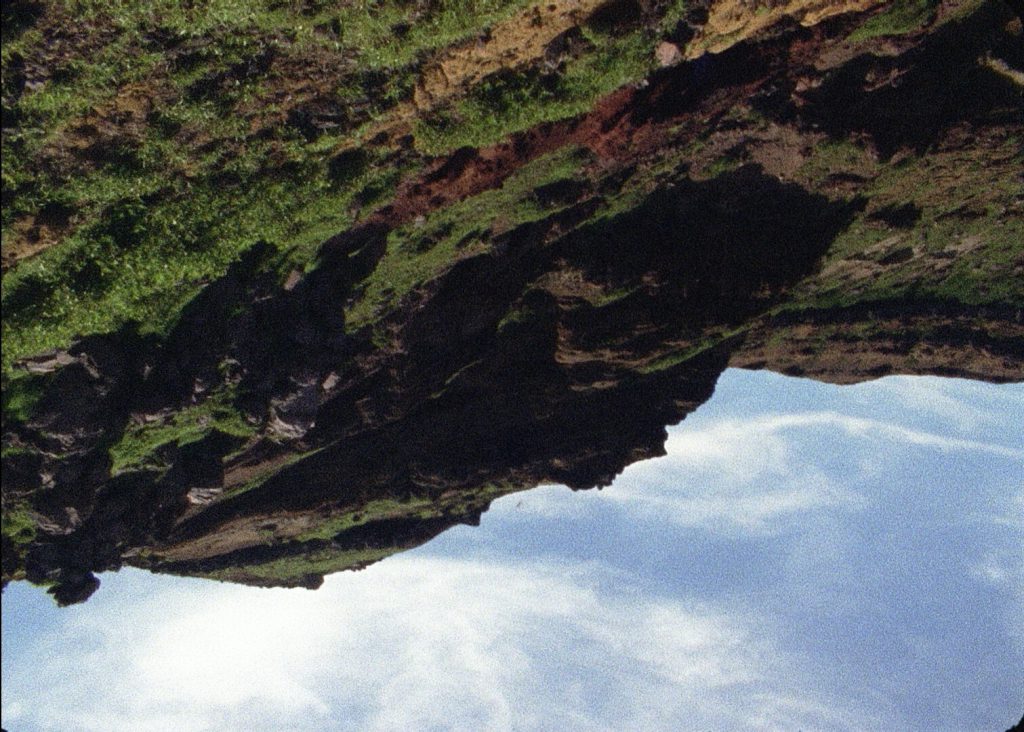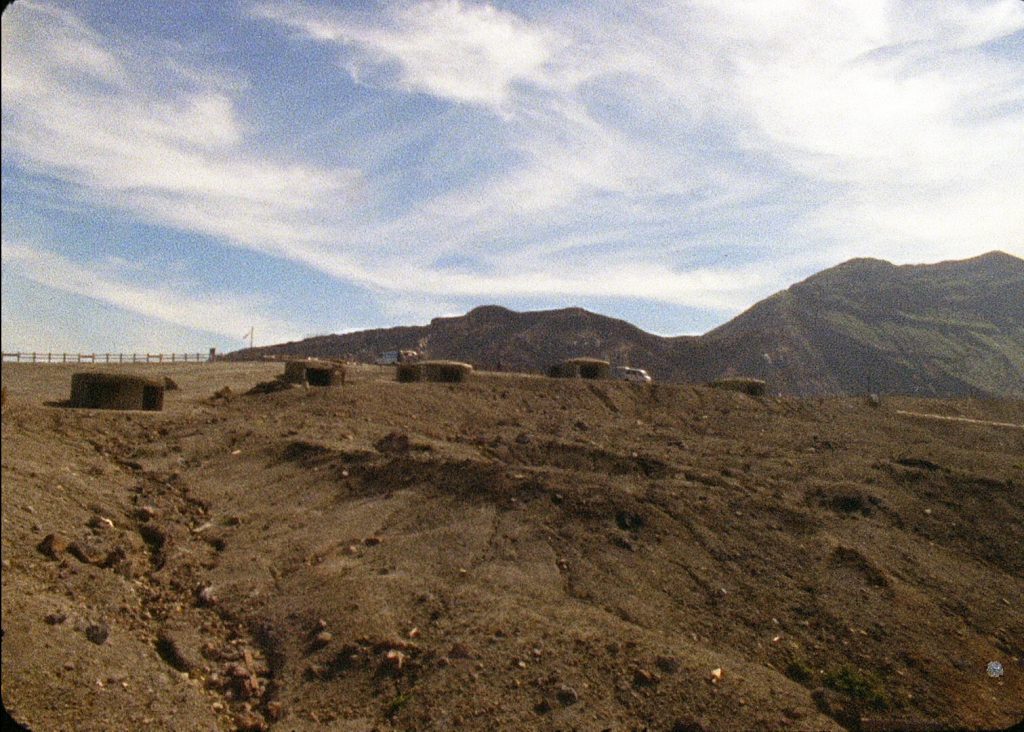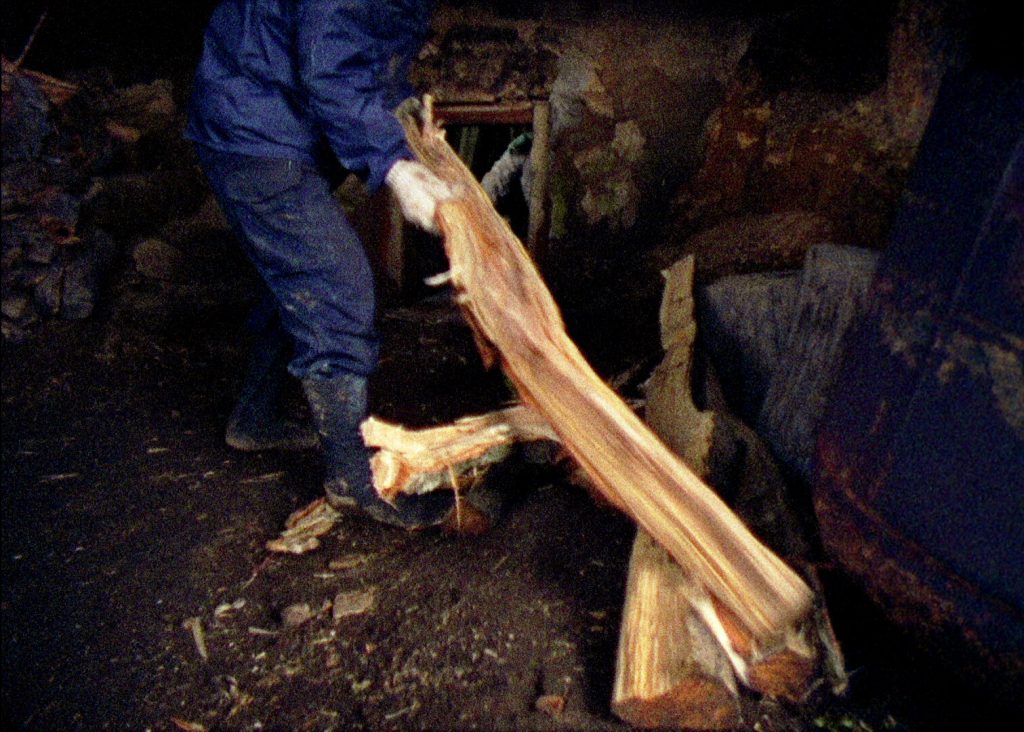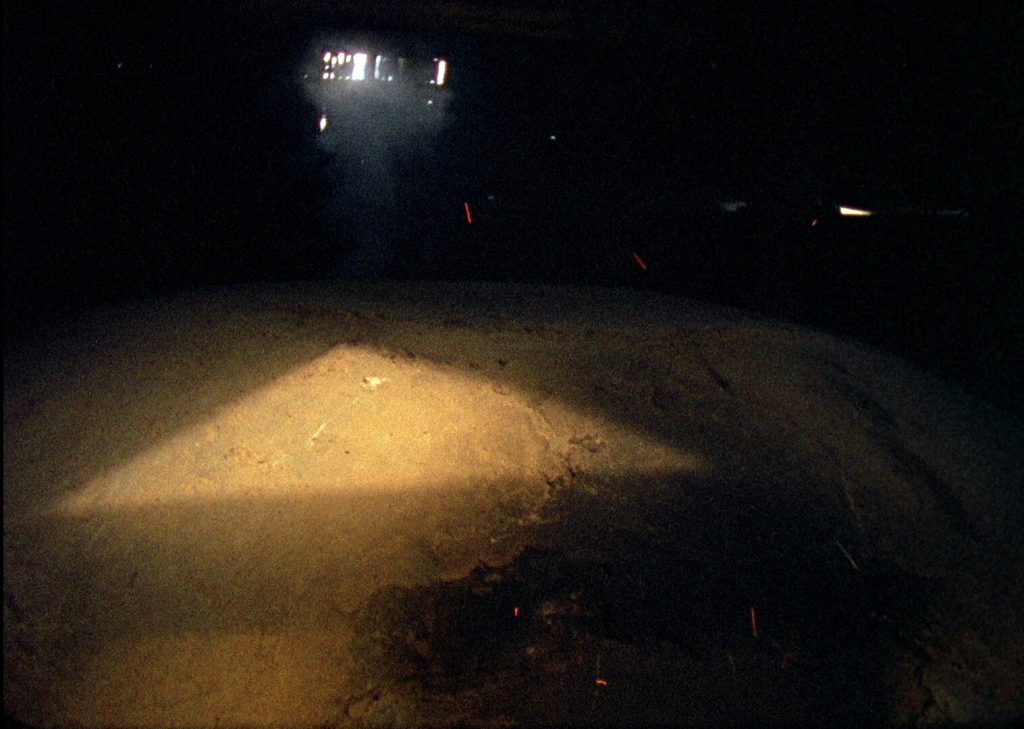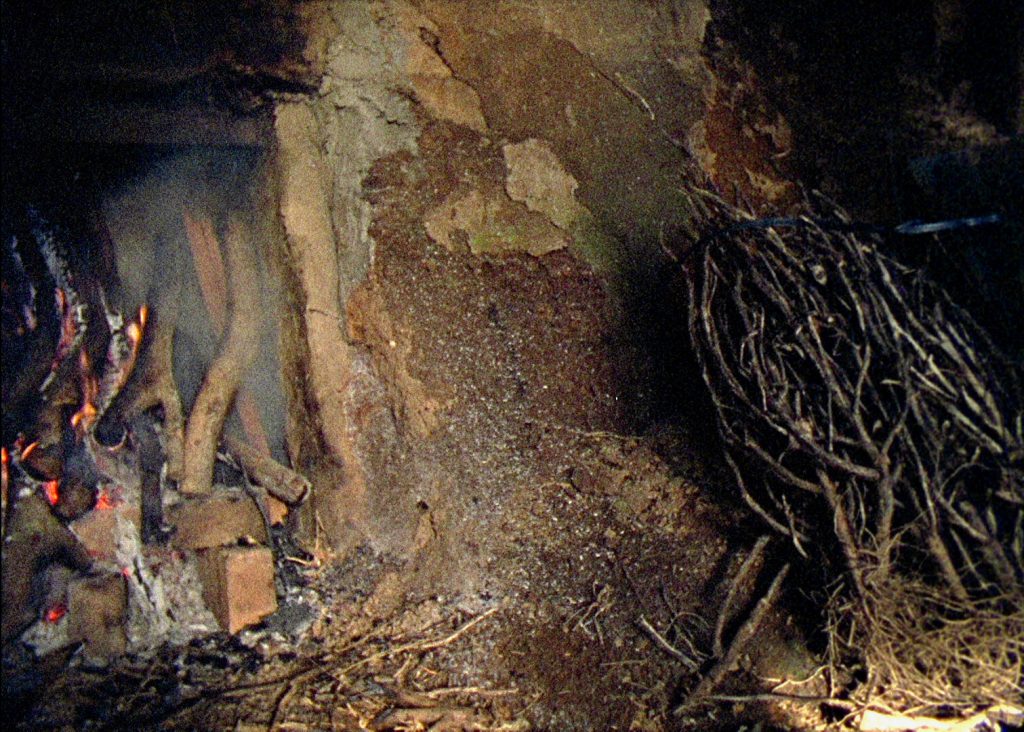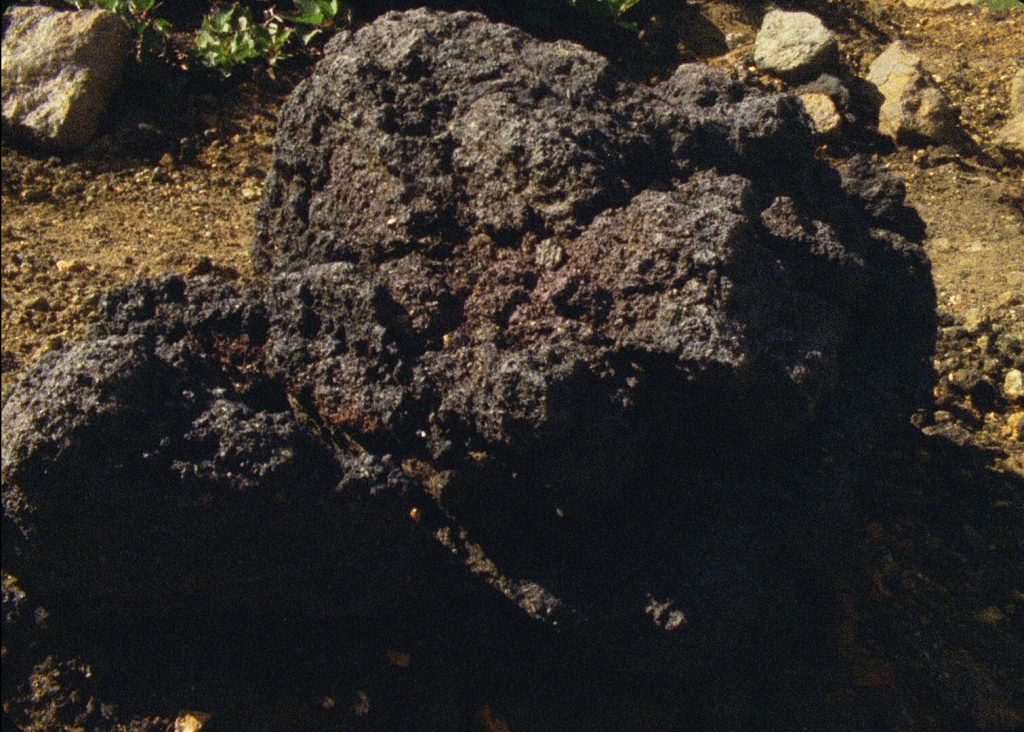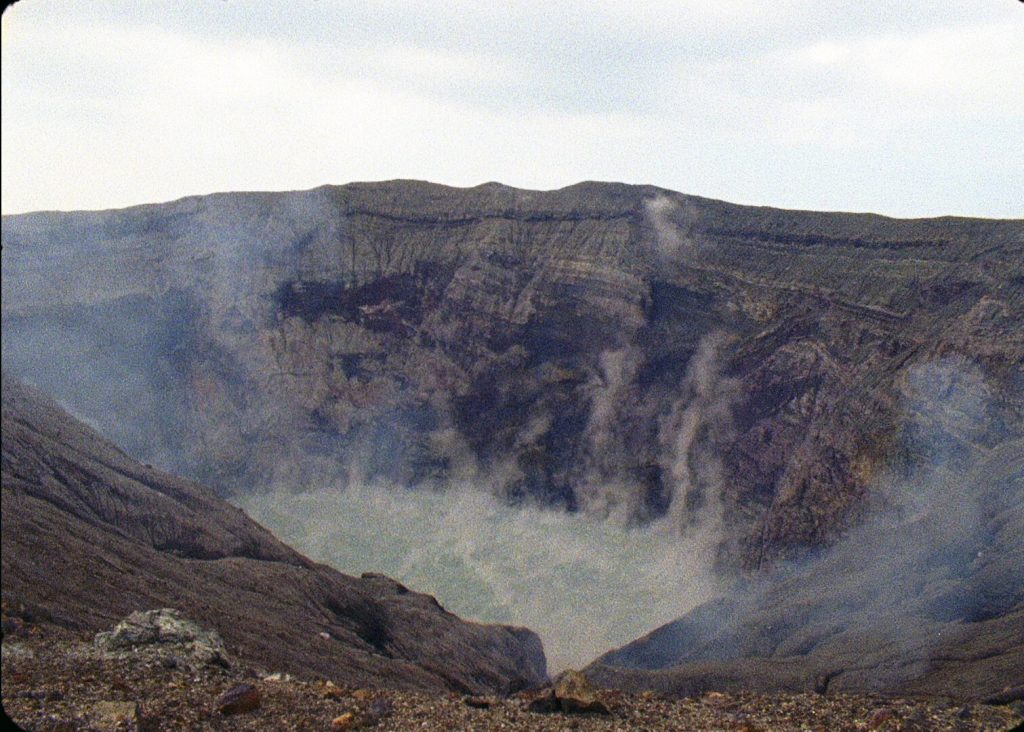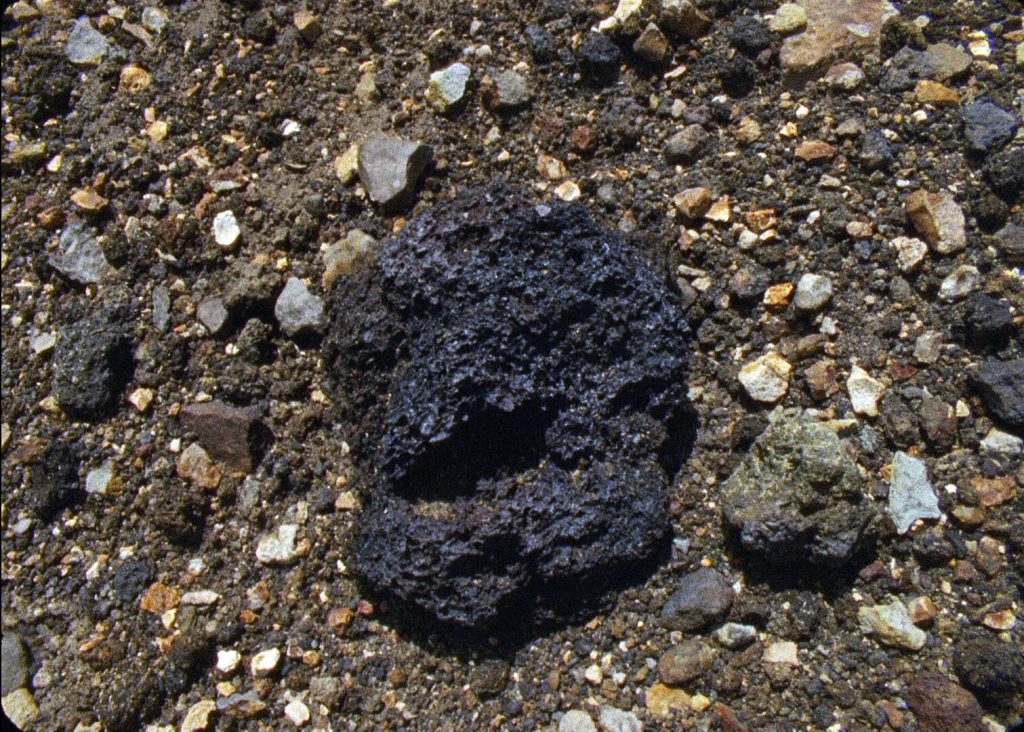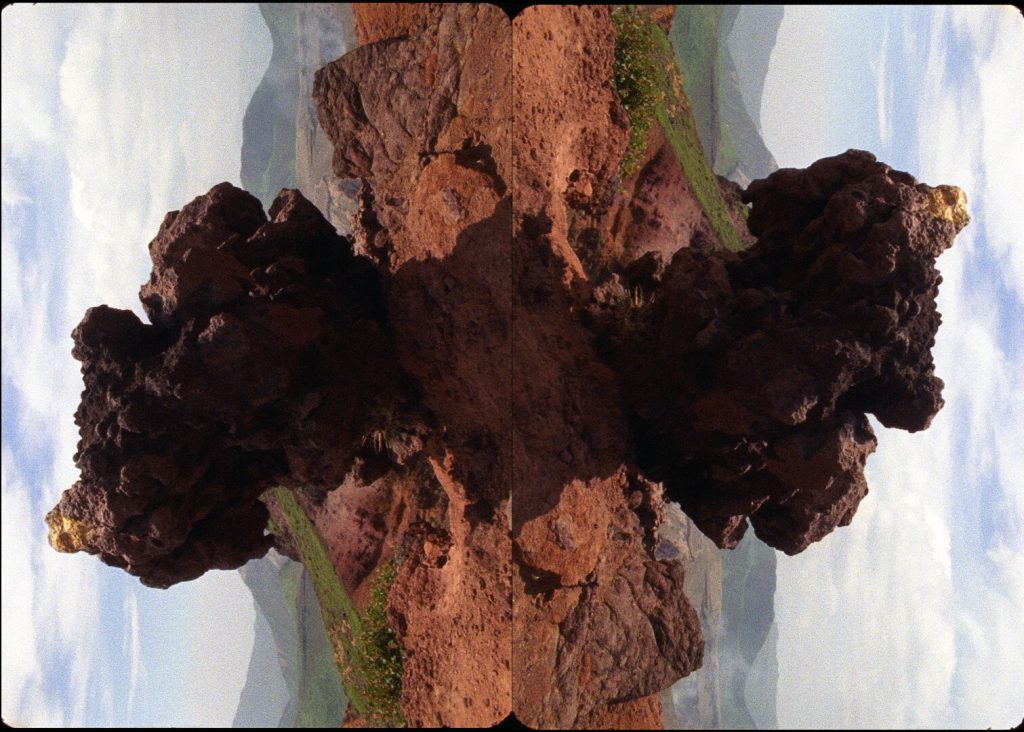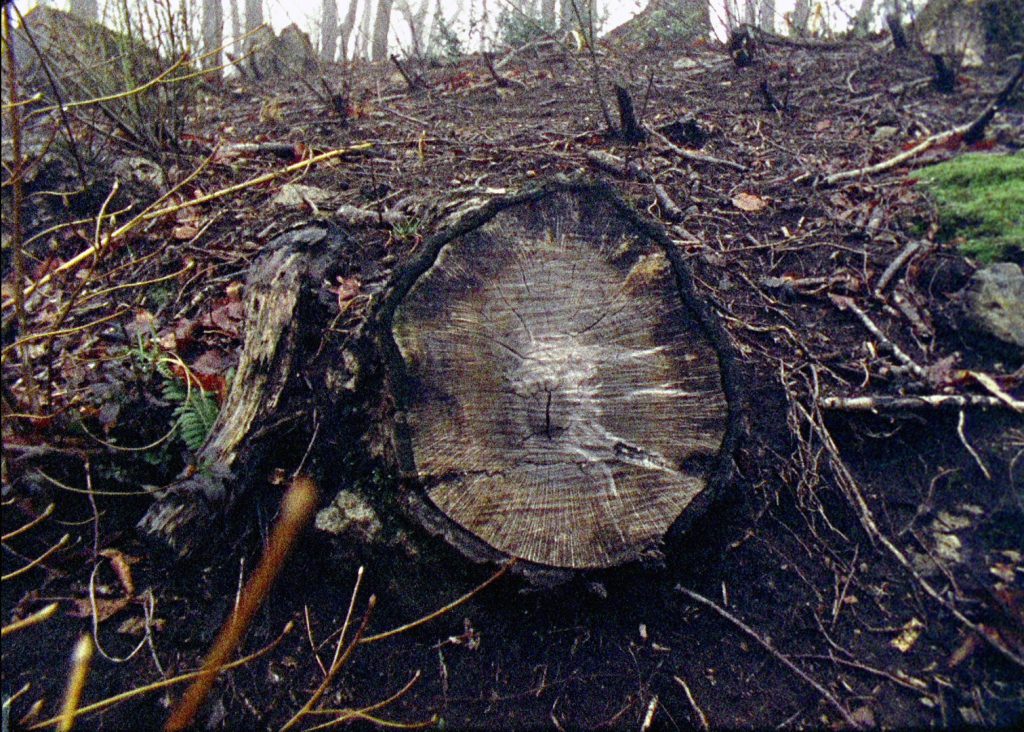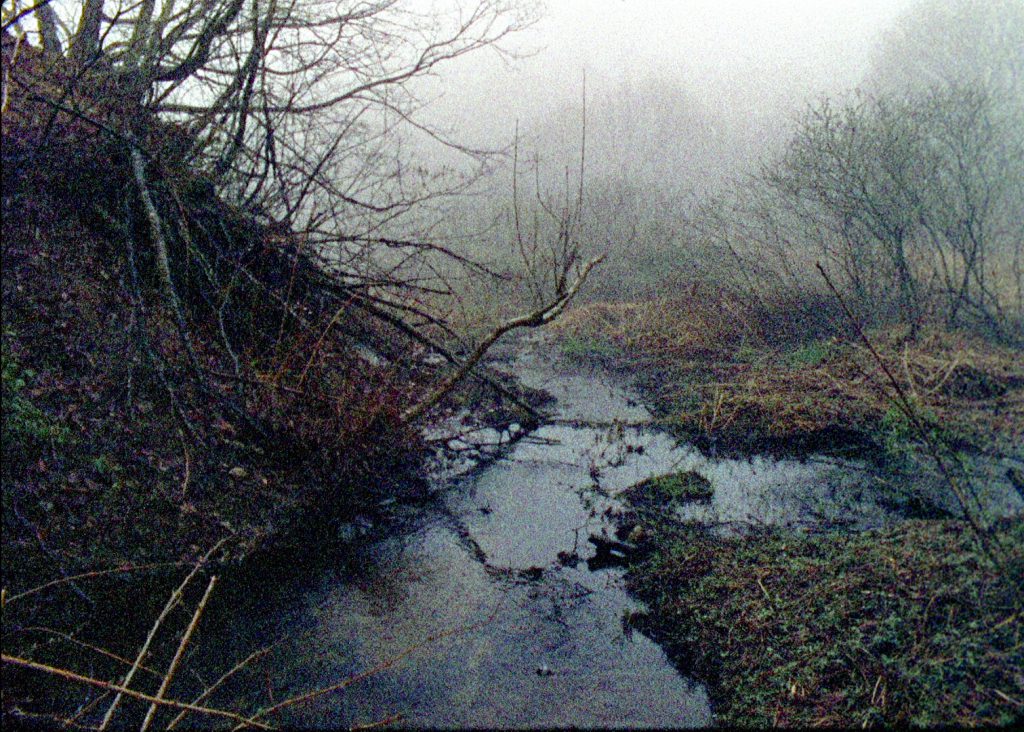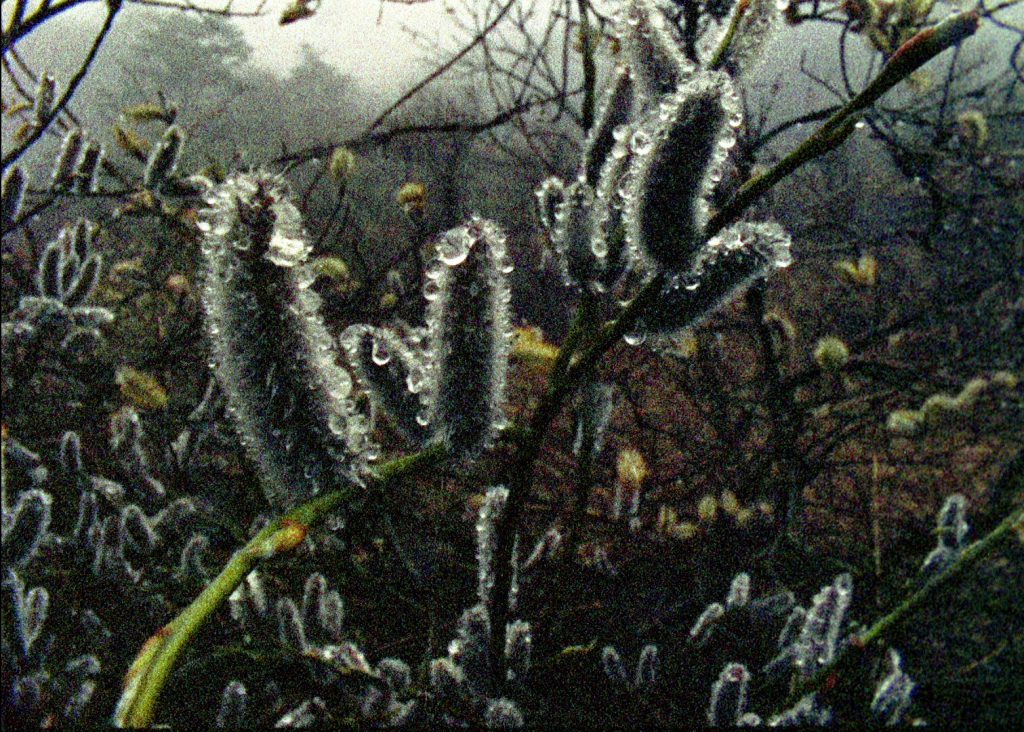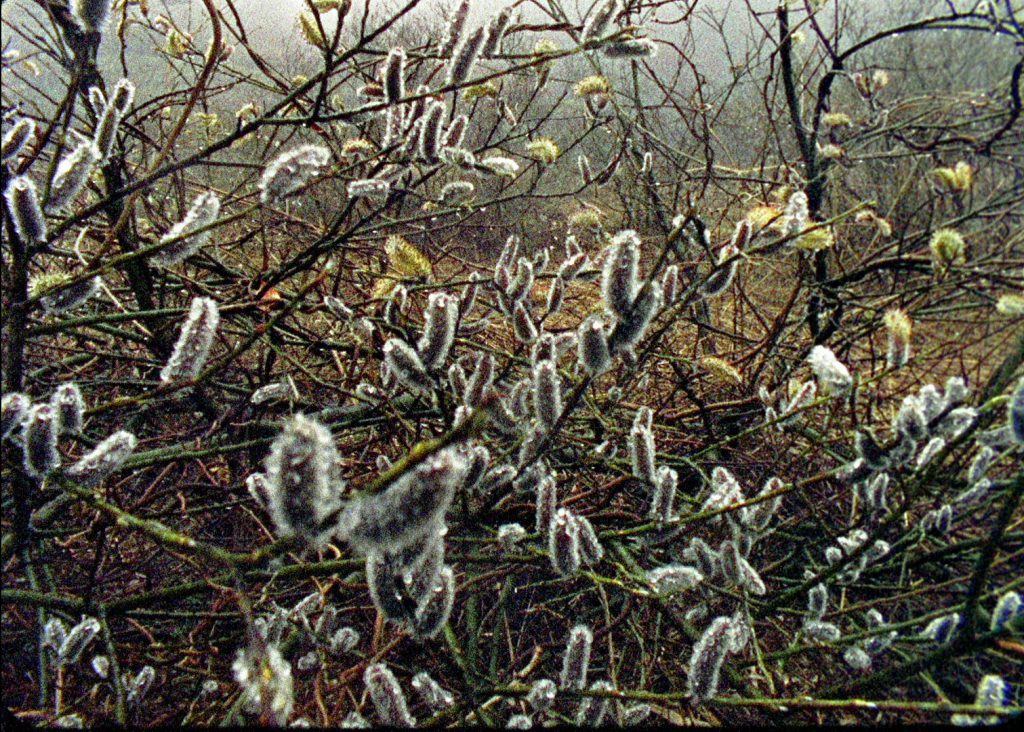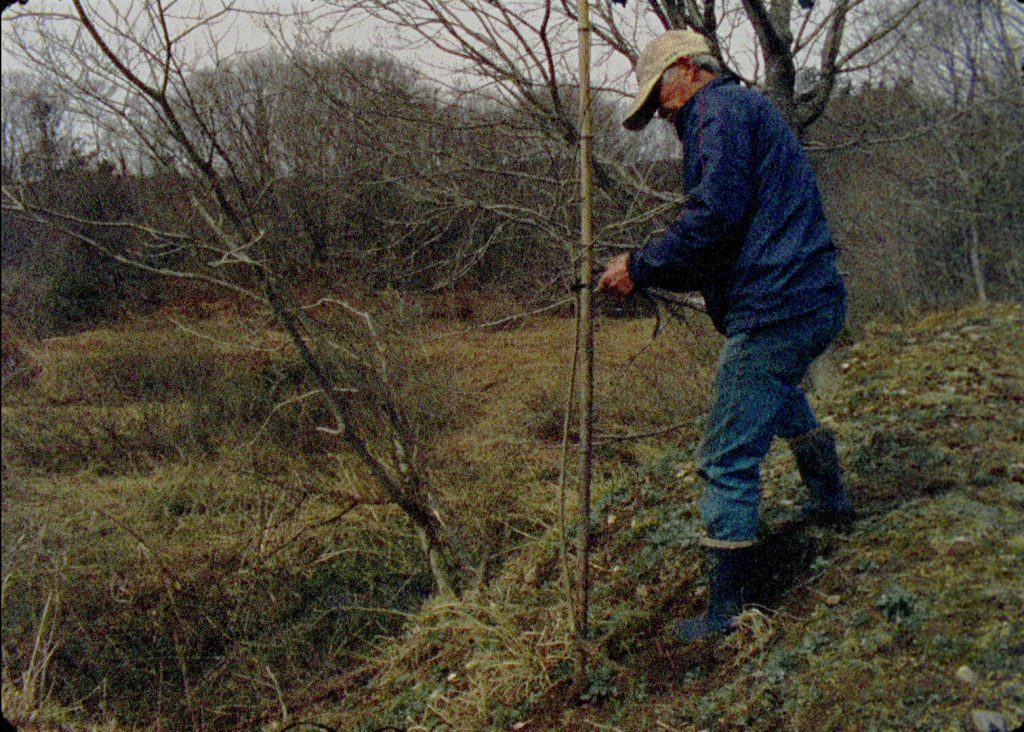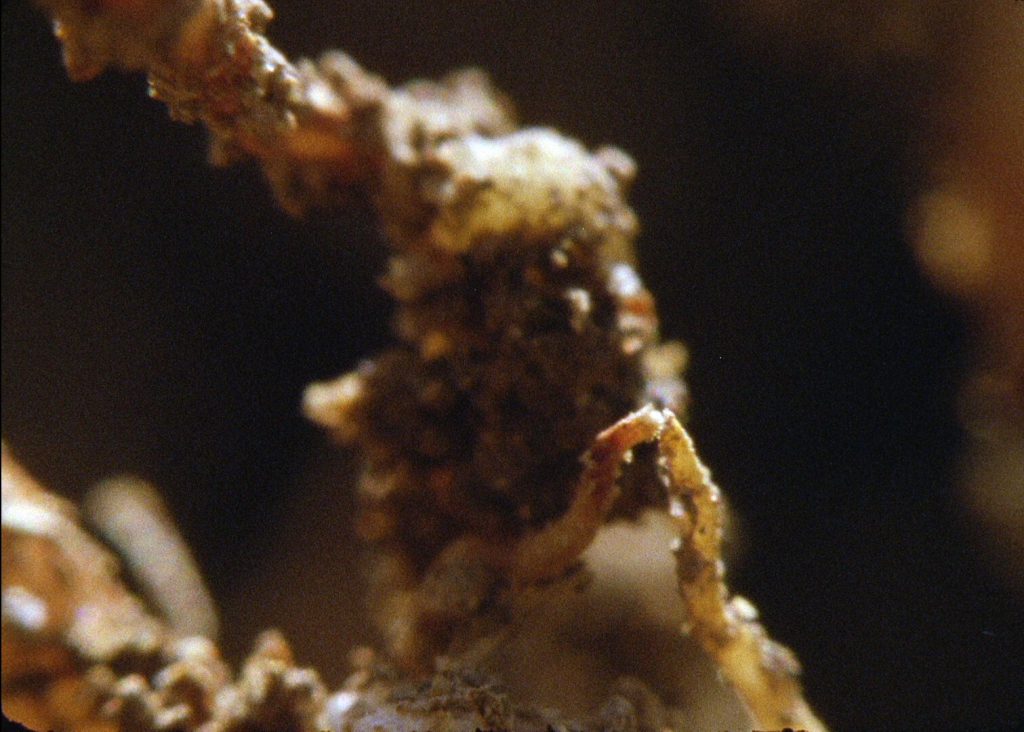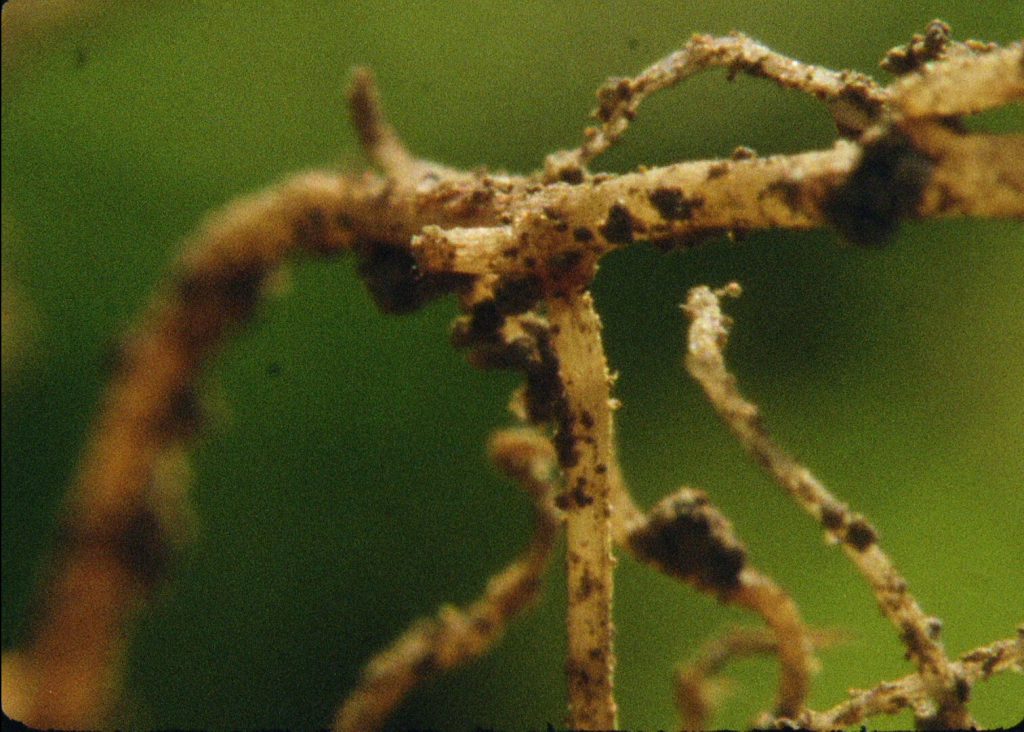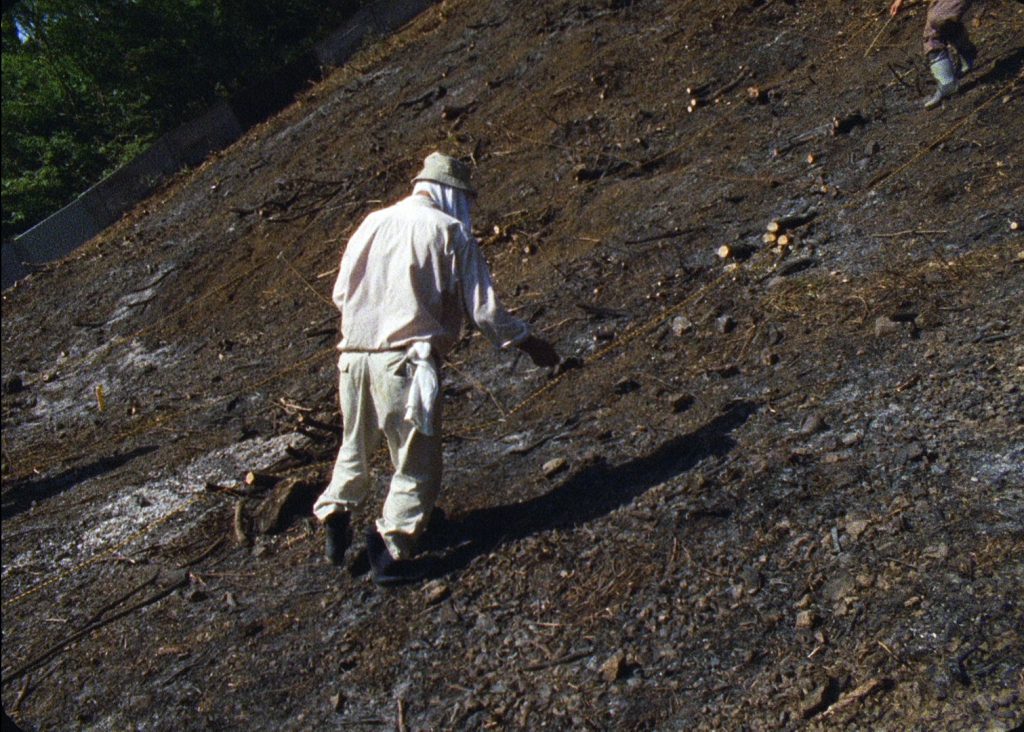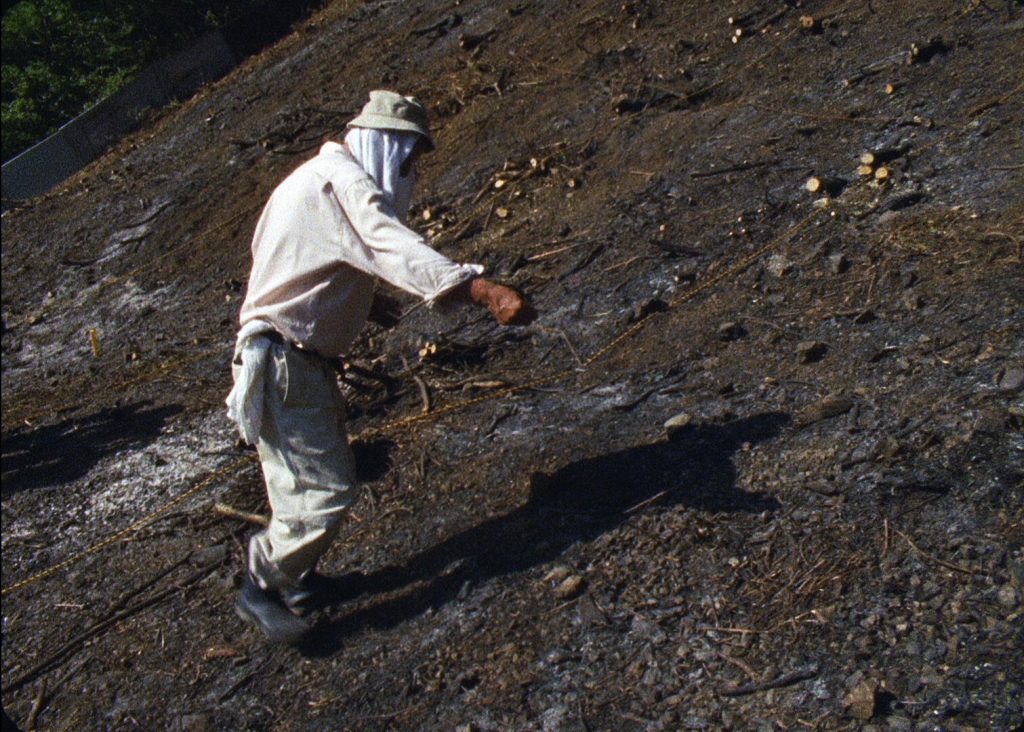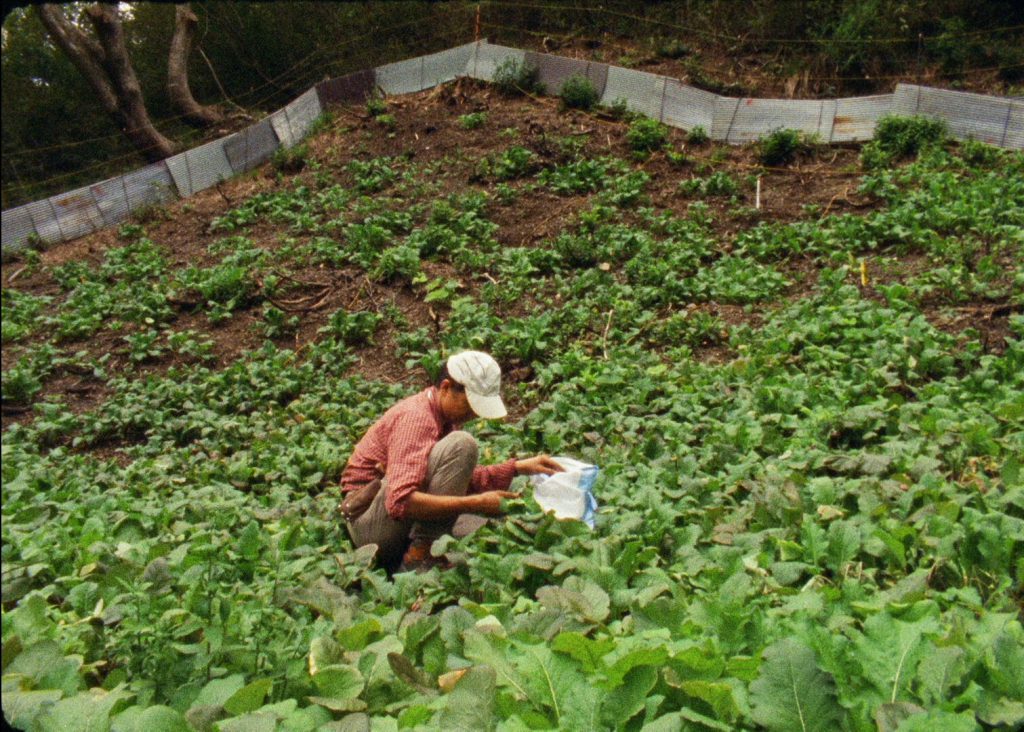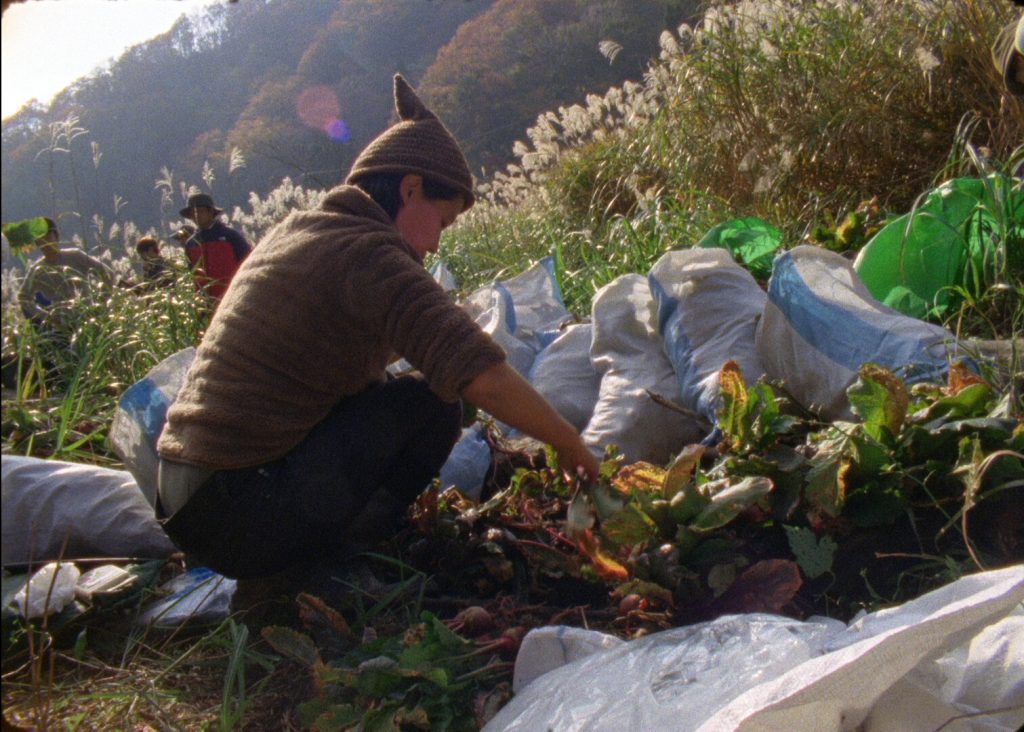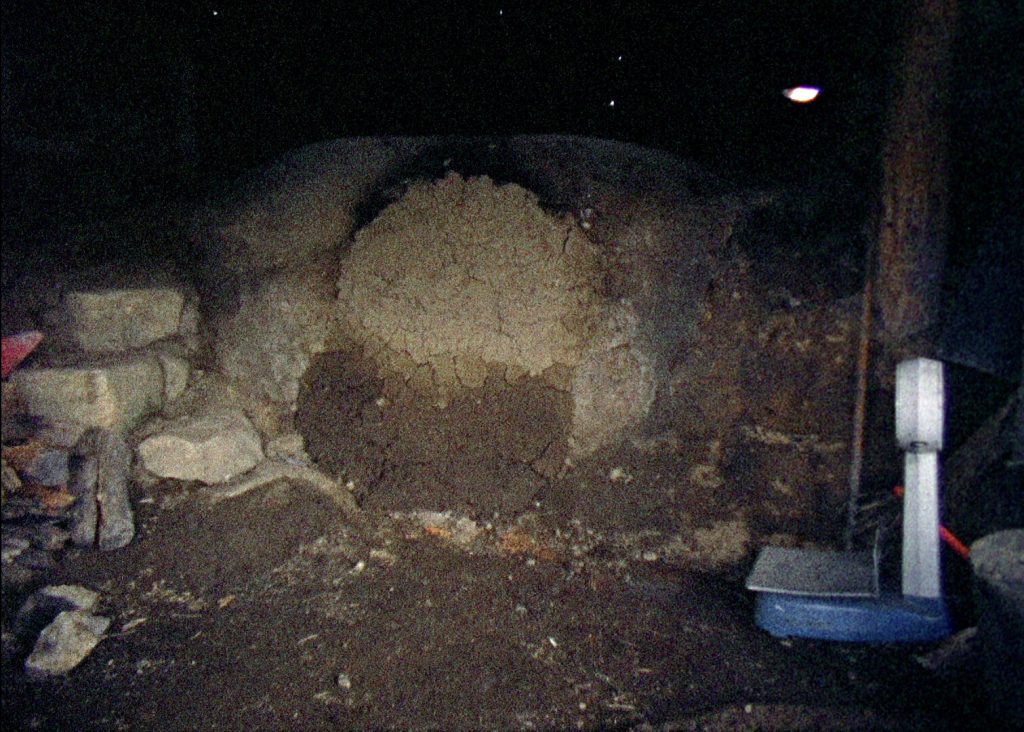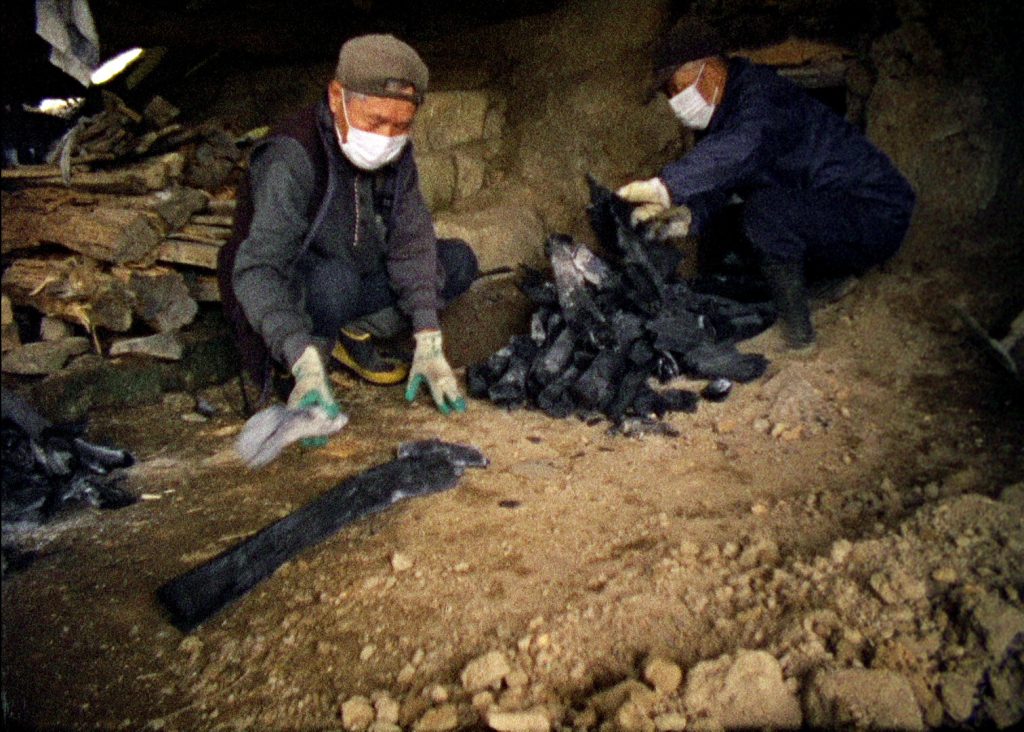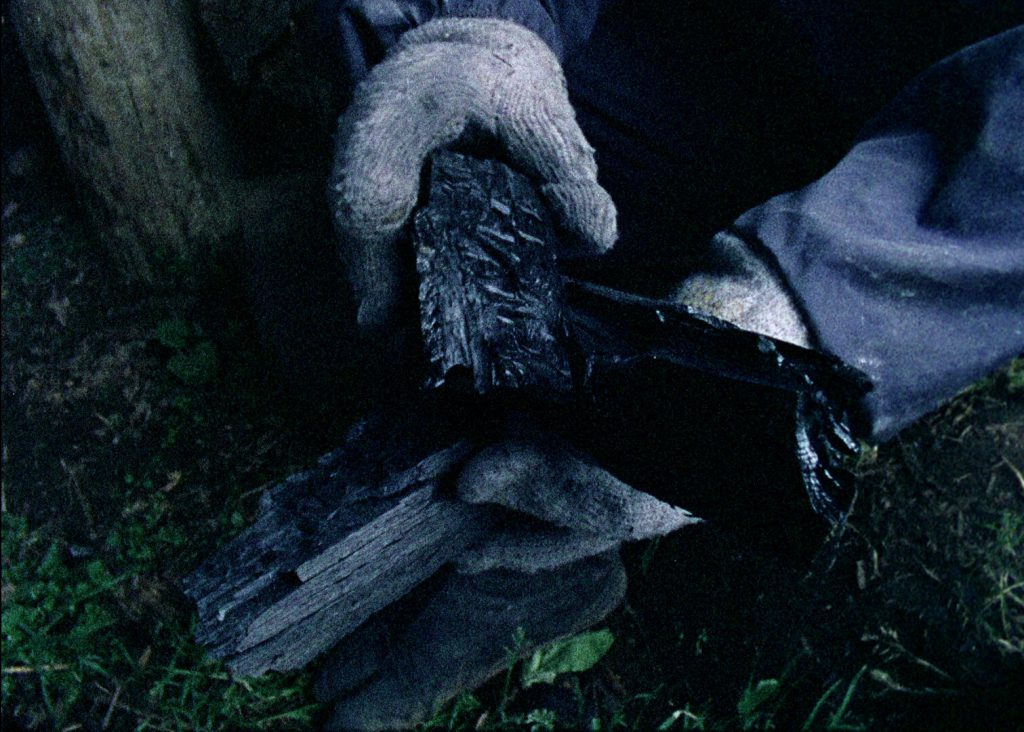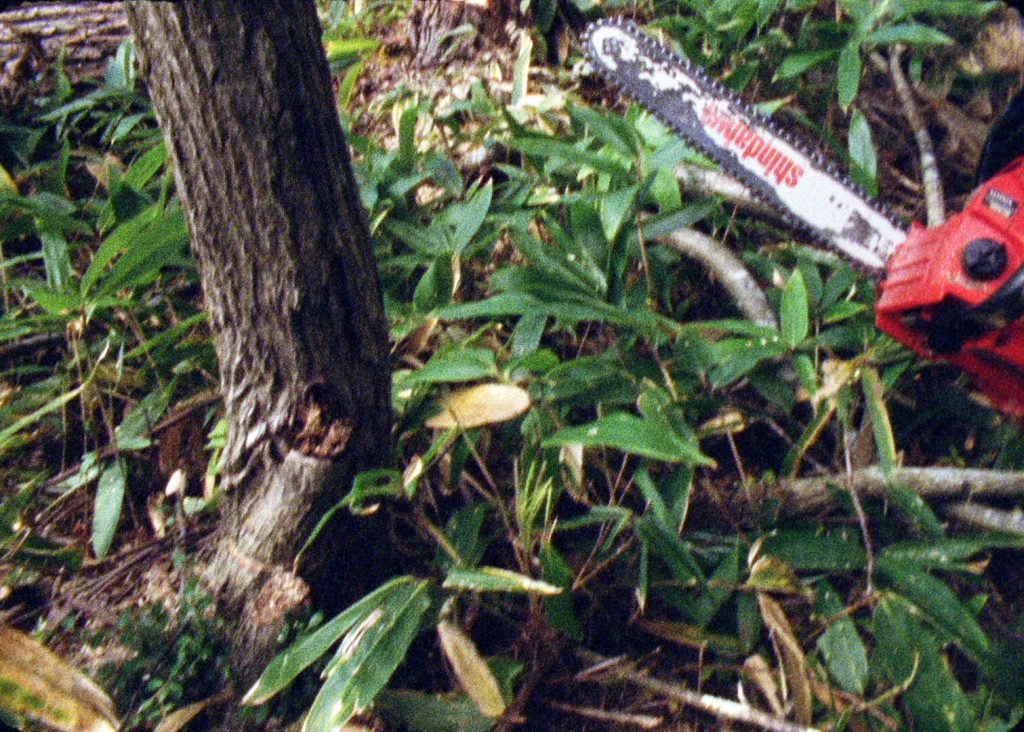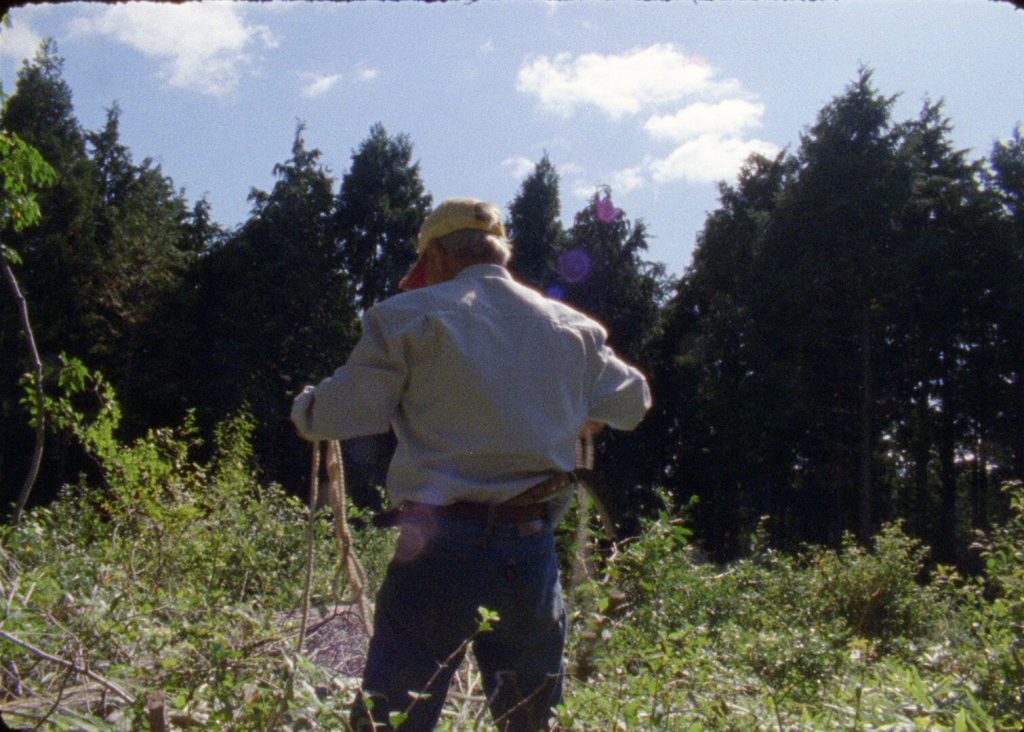Disturbed Ecologies
Who Does The Earth Think It Is (Becoming Fire)
16mm, color/sound, 56 min. 11sec., Japanese with English subtitles, Japan 2020
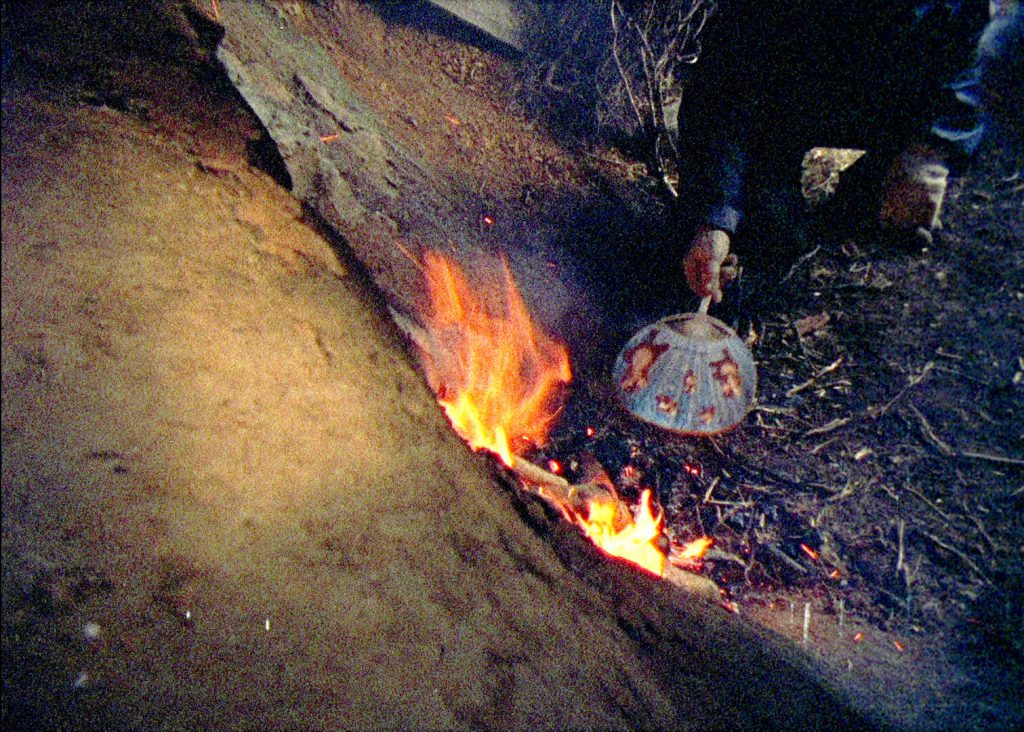
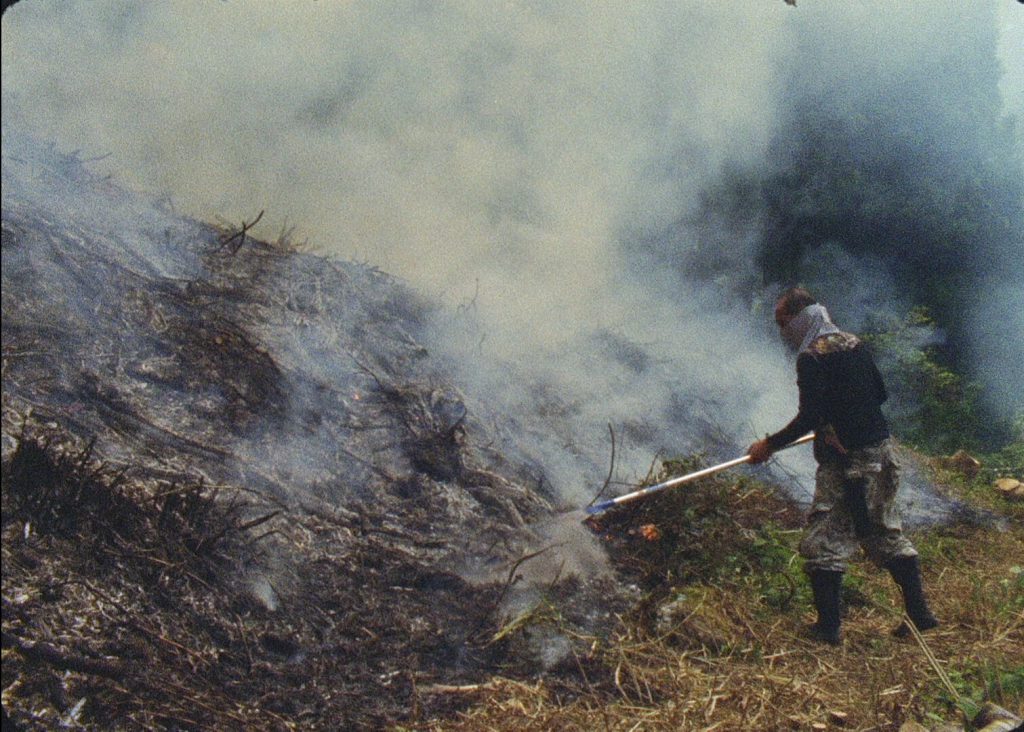
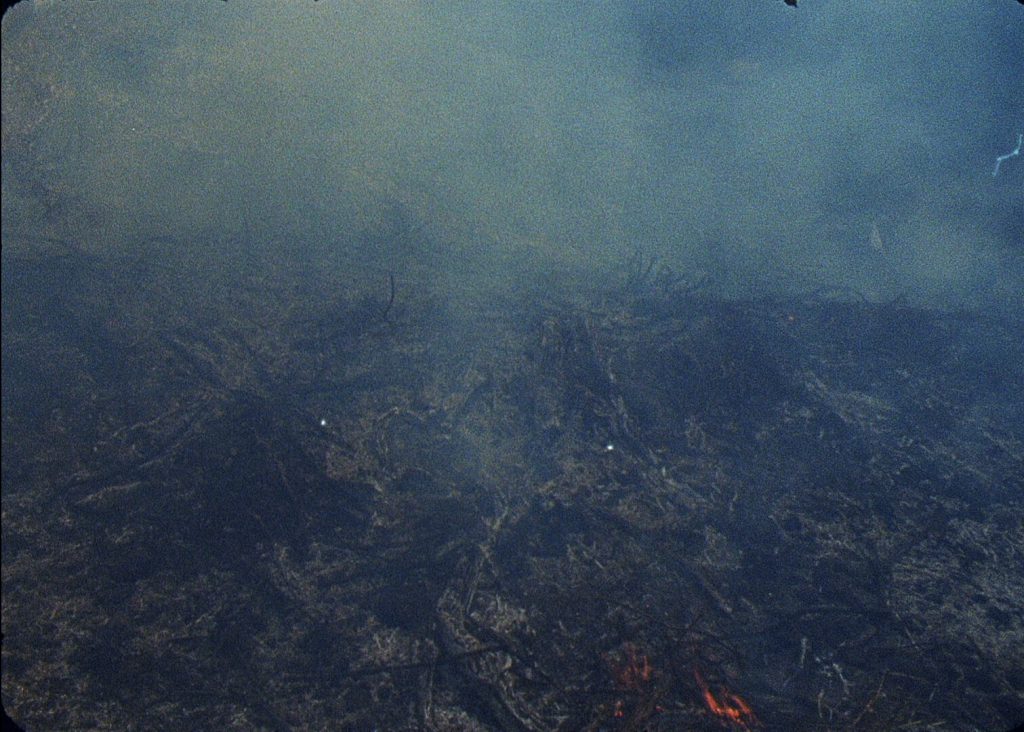
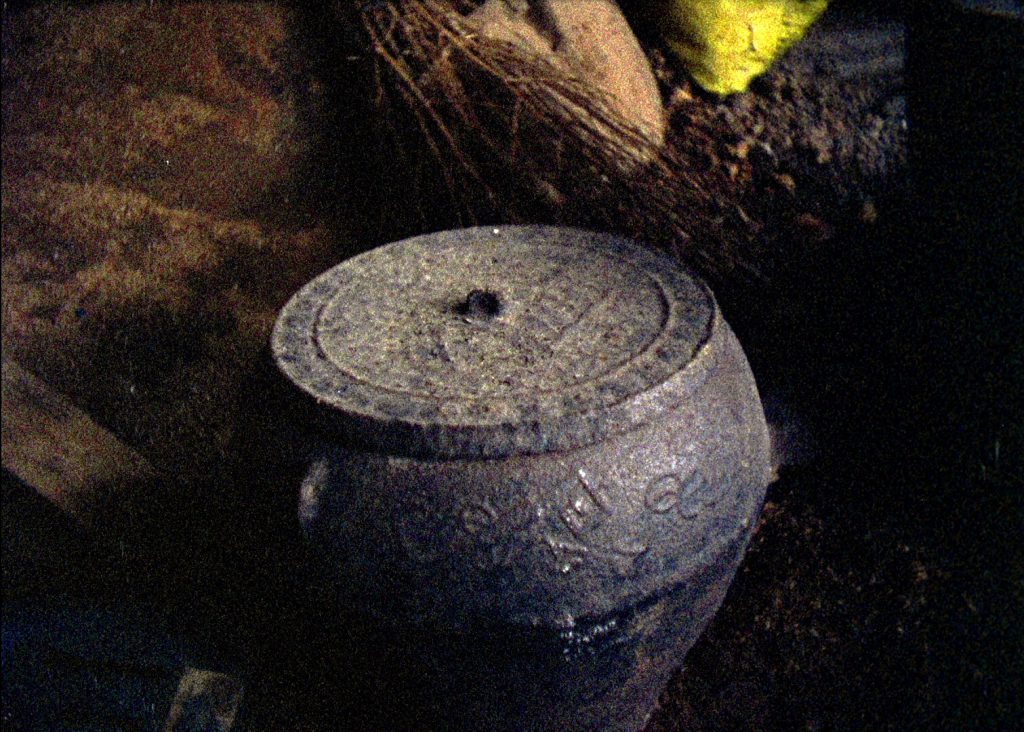
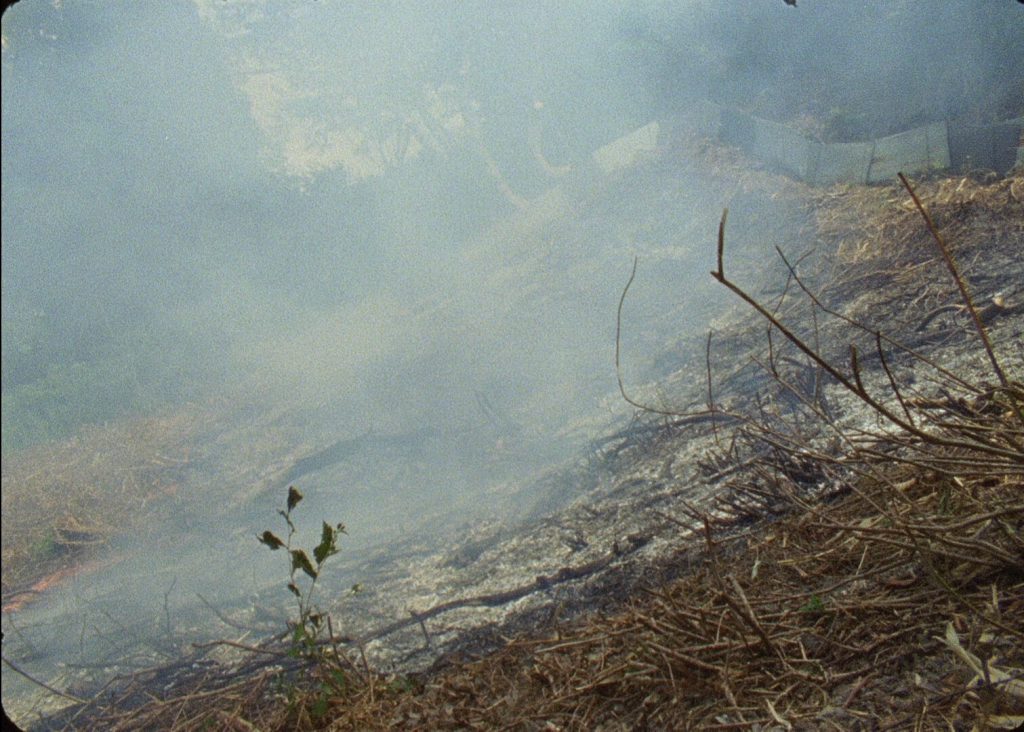
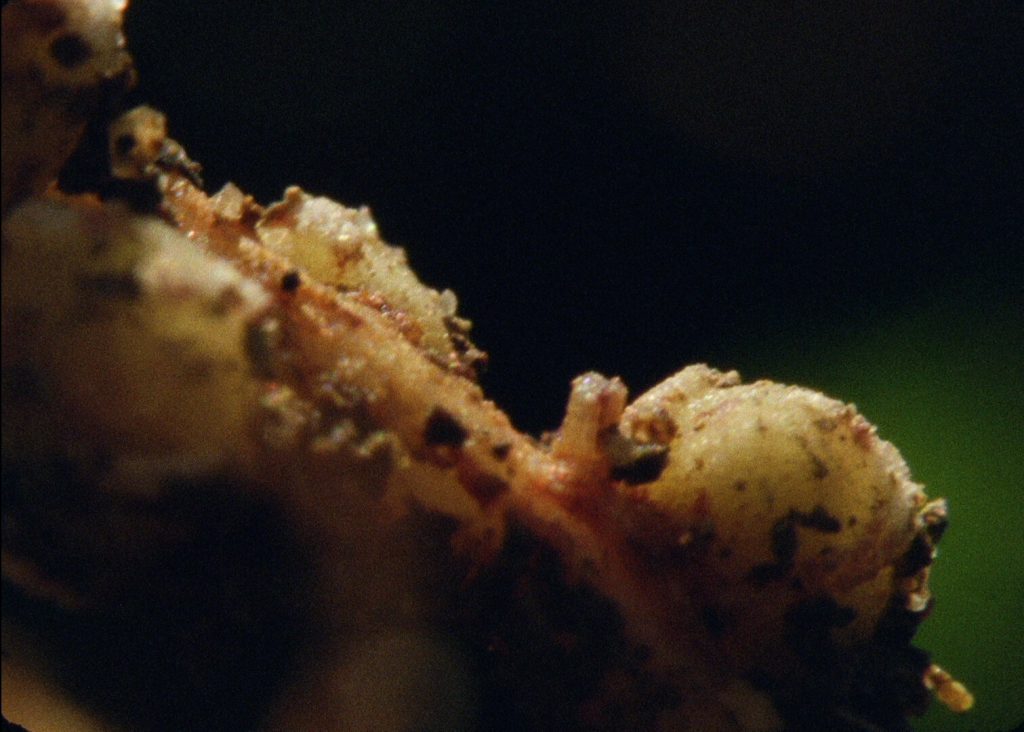
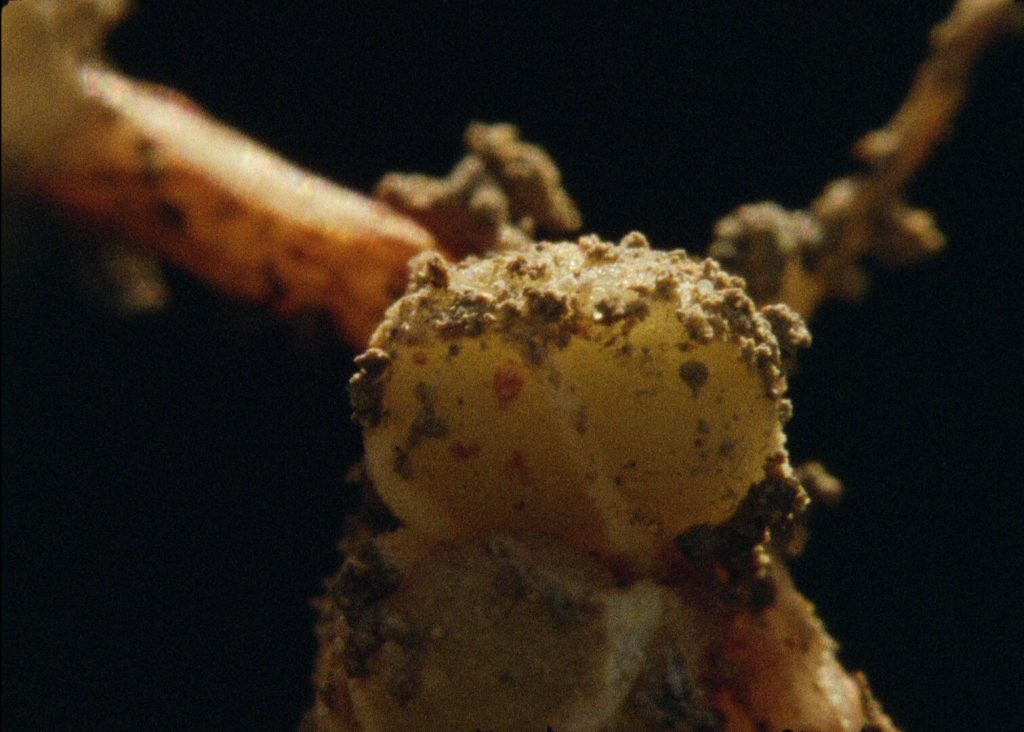
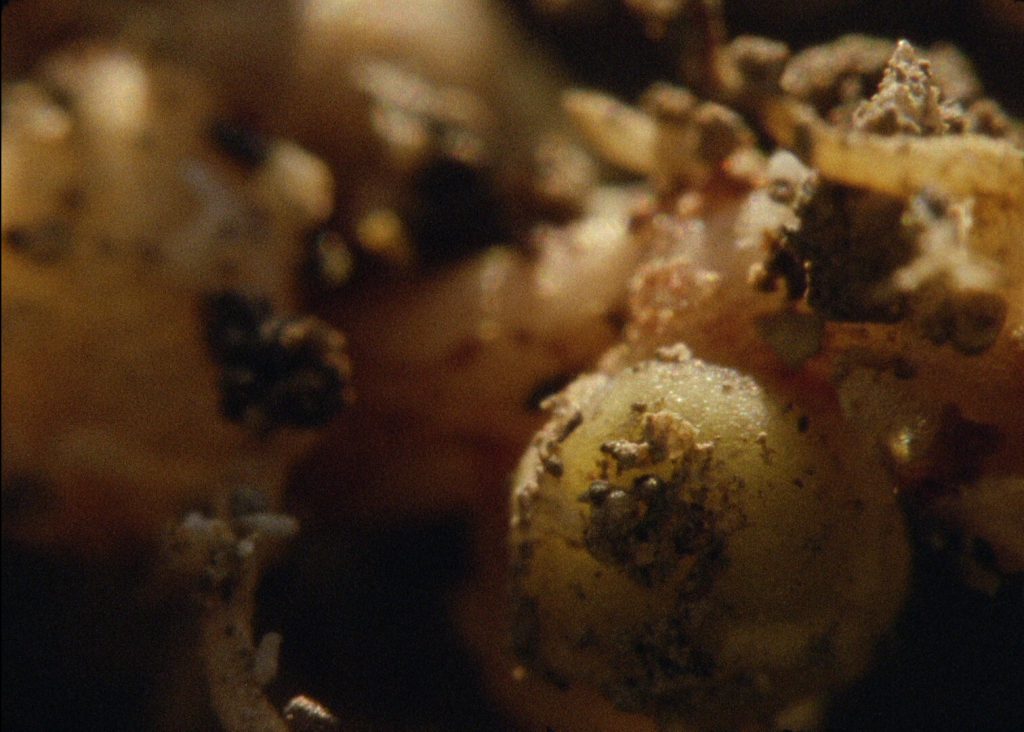
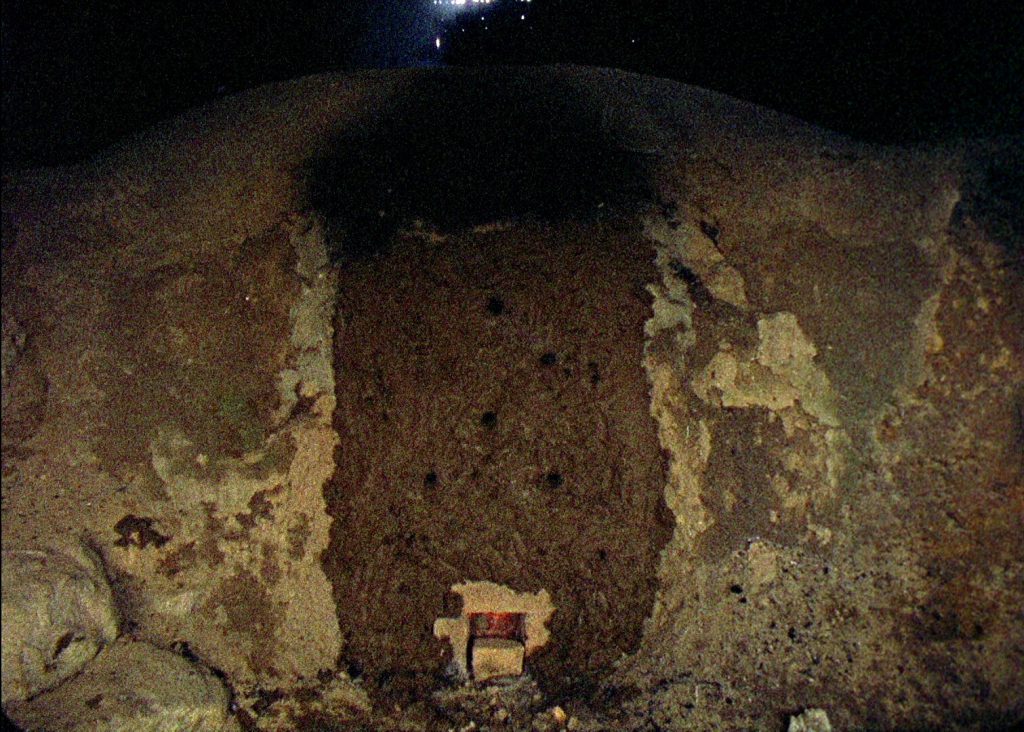
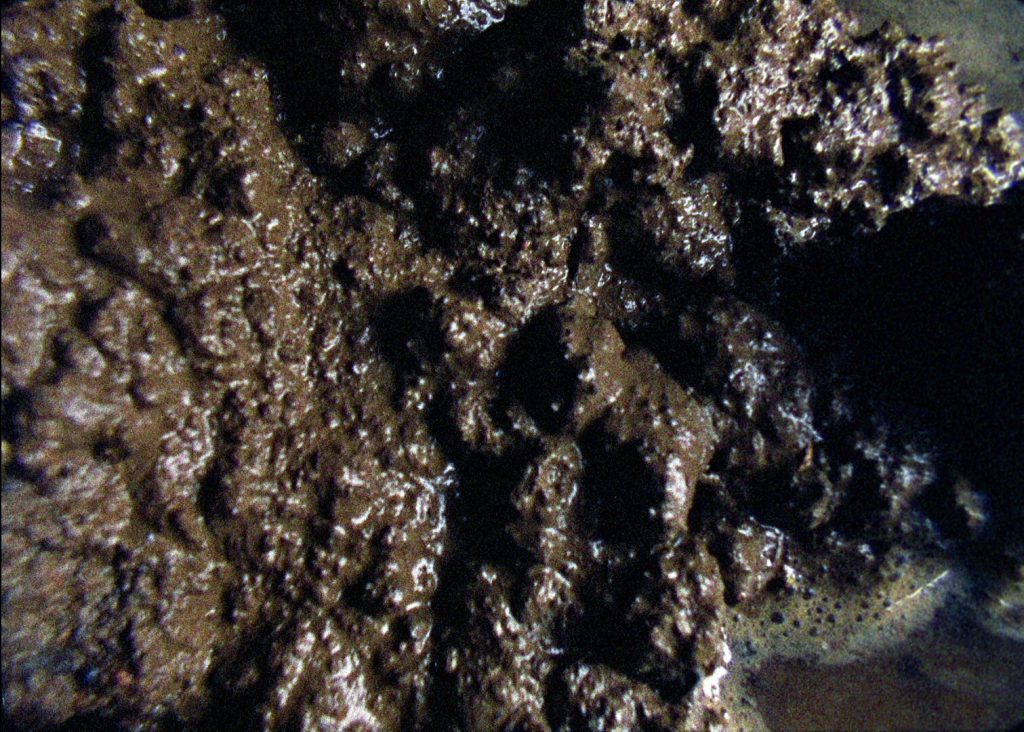
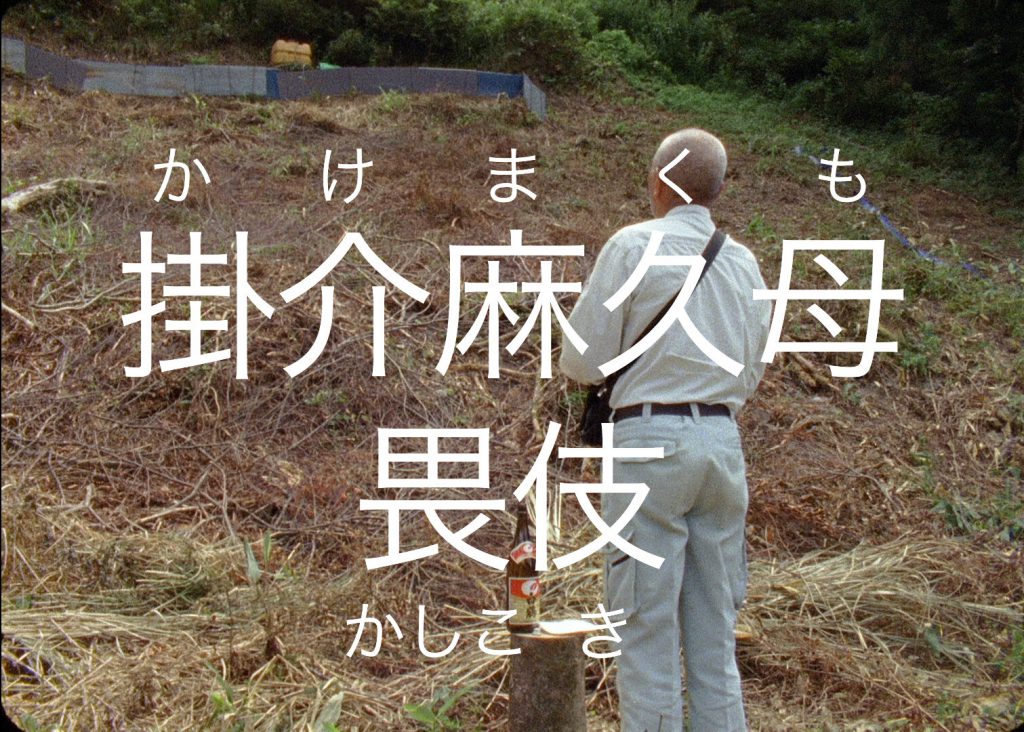
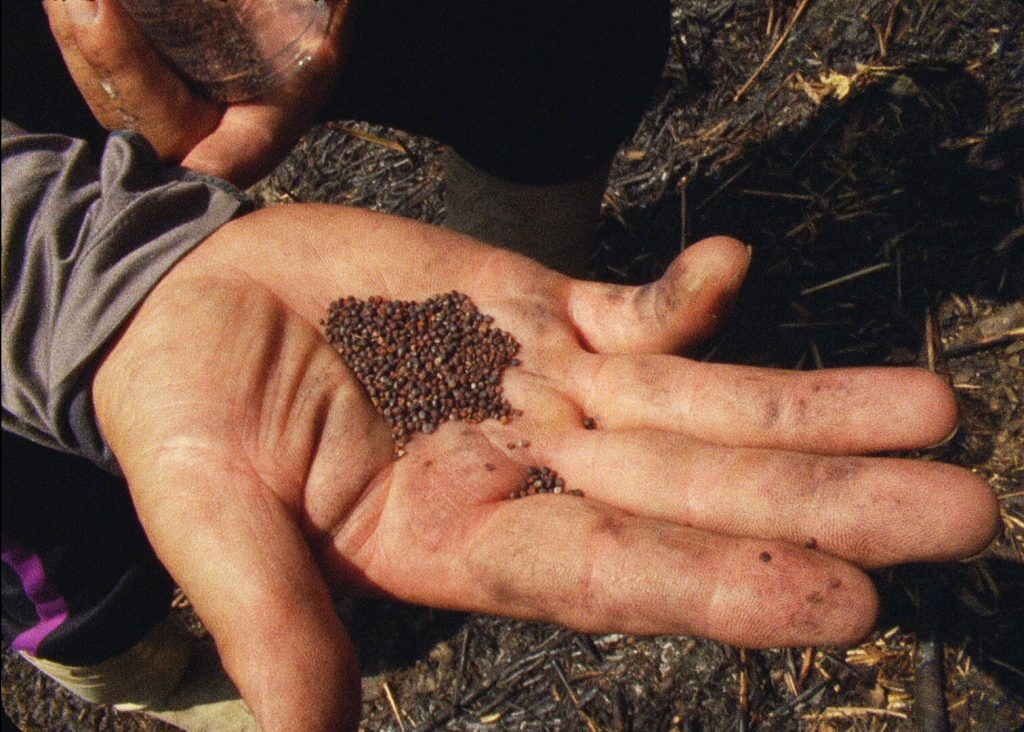
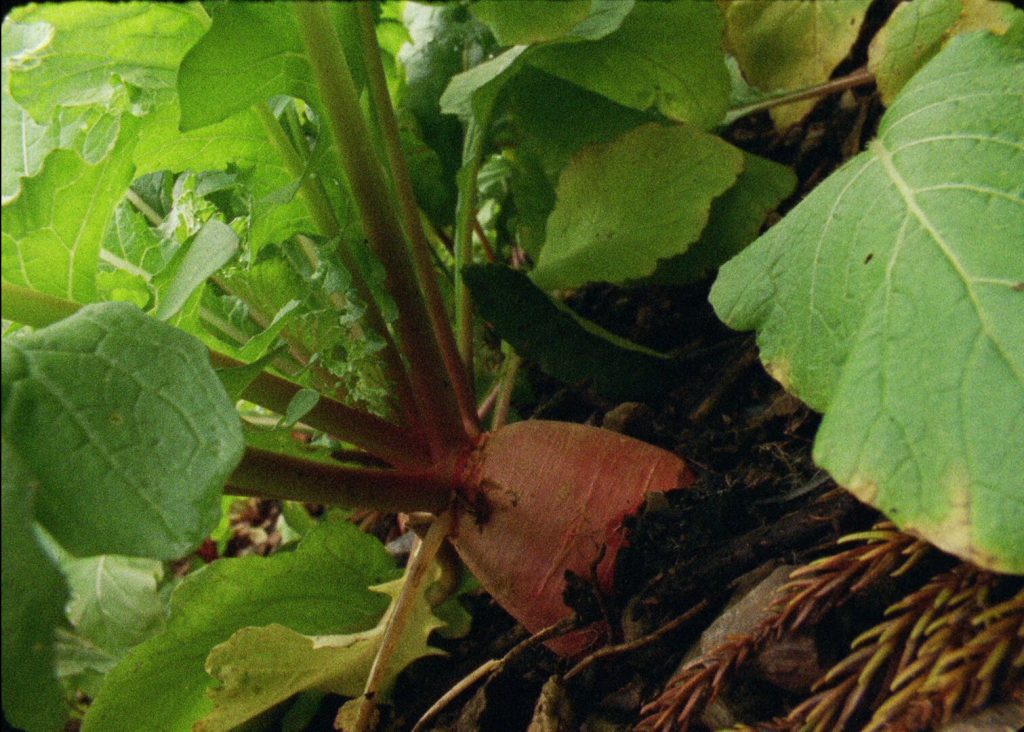
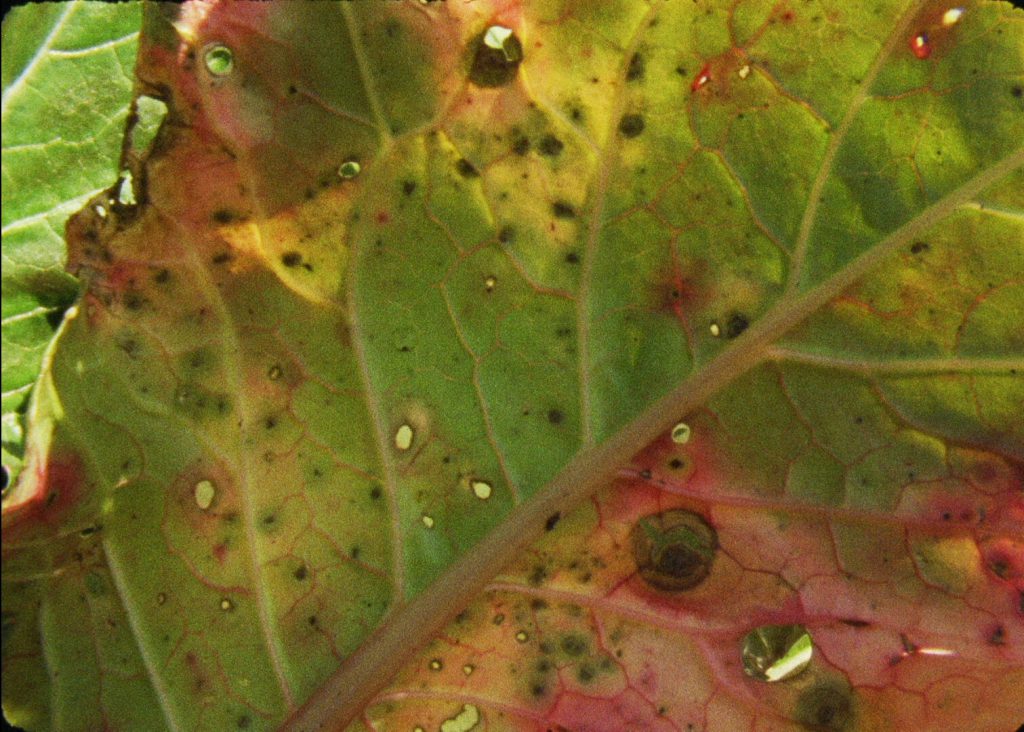
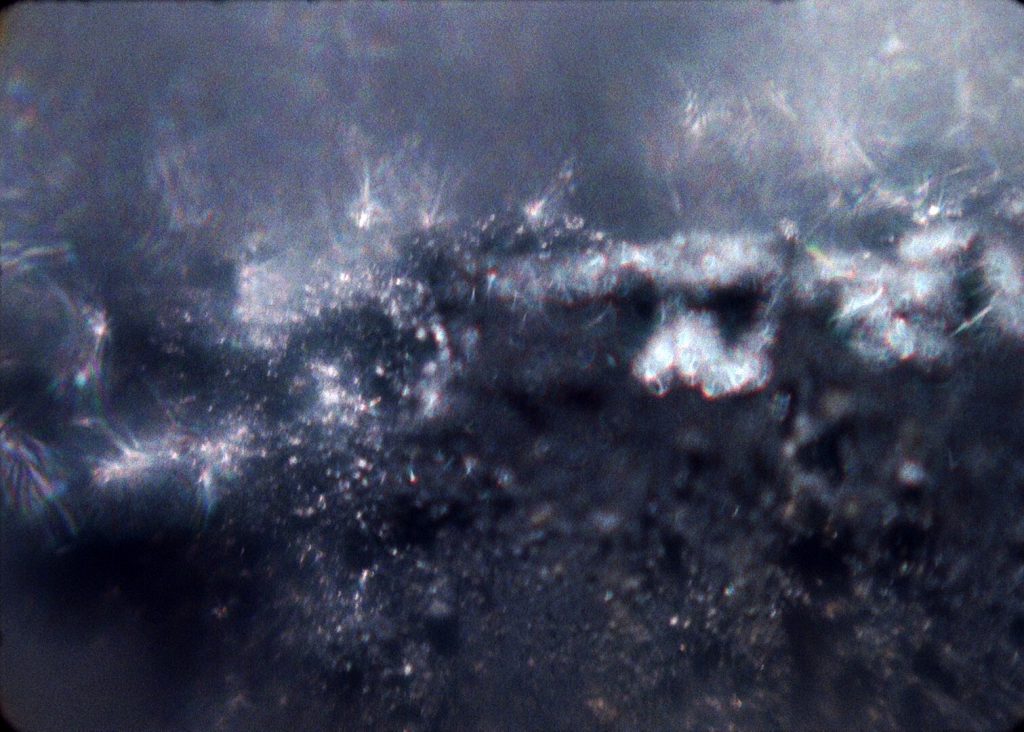
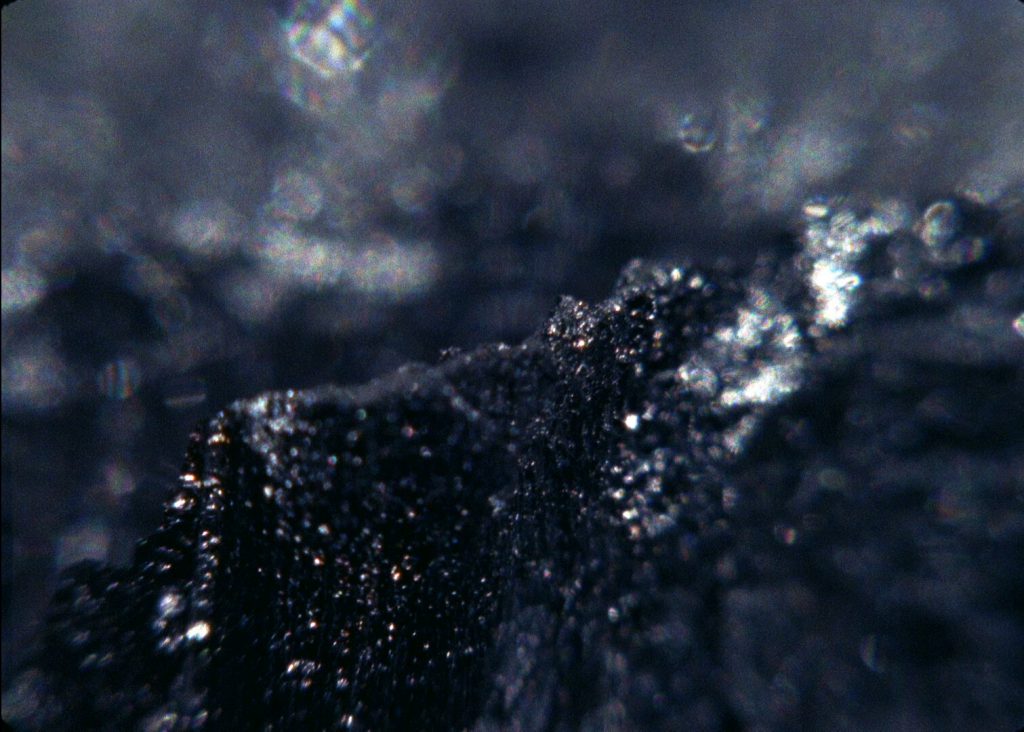
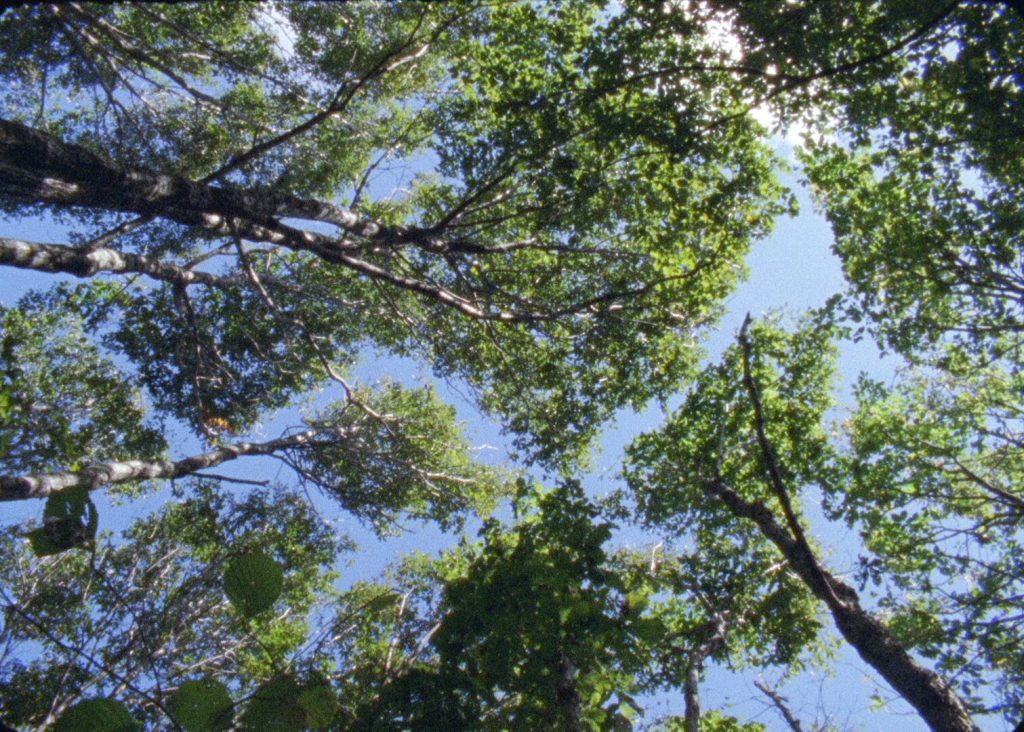
Following my dog, this writing begins in our charred orchard in Sicily after a wildfire. It being summer, fires ignite—and not just by themselves. From my childhood I remember my father discussing with other farmers the best time to burn their fields after the harvest. They would wait for the right humidity and a good wind, careful not to let the fire pass over to other fields. Then suddenly fire was banned. The smoke, emitting natural aerosols, was considered an air pollutant and a health hazard. Meanwhile, agricultural machinery, lorries, cars, aircrafts, power plants, heating and cooling systems, all burning fossil fuels, were considered unproblematic. By the end of the 1980s, the agricultural practice of burning fields on a landscape scale had disappeared completely from the West German countryside. Today, in many parts of the world, human burning practices have been nearly extinguished and natural fires systematically suppressed, according to the notion that they damage nature. And it’s true, fire kills—certain trees and many organisms die in a fire. But fire also fosters ecology. [continue reading]
Thanks to Yoshioka Tokuo, Yano Takechi, Katsue Fukamachi, Reiji Suzuki and the other participants of the yakihata project.
International post-doc at the Kyoto University Graduate School of Global Environment Studies in association with Gothenburg University Valand Academy 2016-2019. Additional support provided by the Swedish Research Council.
For public or institutional screenings, please contact Arsenal Distribution Berlin
